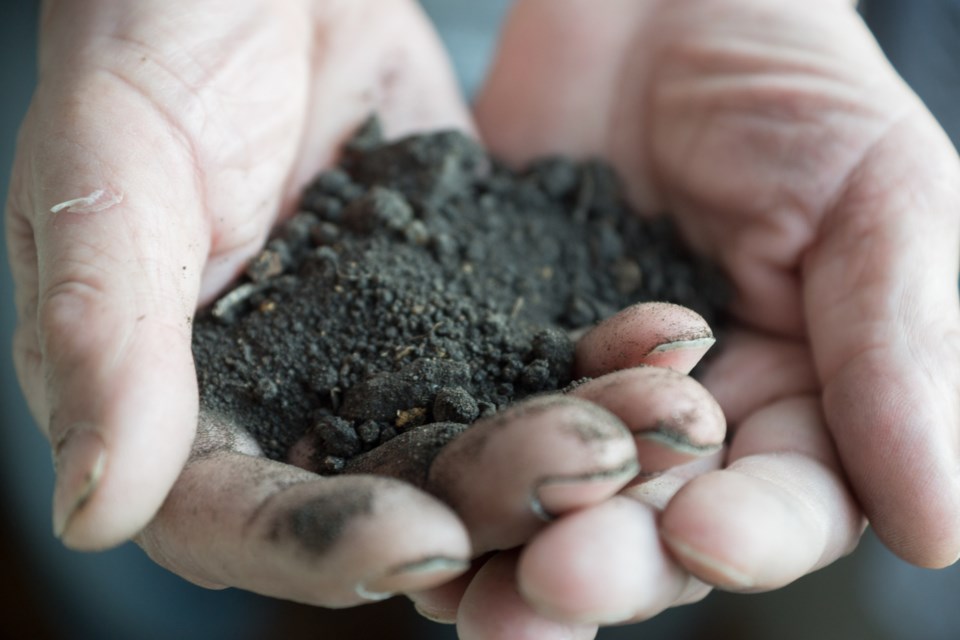It's been a tough few days lately.
My brother-in-law had a stroke recently and is still in the hospital with a long recovery journey ahead of him.
Those of you who read my column may have noticed that even though they are my only family in Canada, I don't talk about my in-laws a lot. It's definitely not because they are not deserving, they sure are, but I feel that we are more private and old-fashioned in the sense of opening up our lives (I guess, both they and I were all born and raised well before it became popular to share everything you think and do with the world).
But if I'd ever share anything about my in-laws, any story about them would start in the same manner – they all are incredibly hard workers. My husband is one of five siblings, and every one of them has a strong work ethic. Part of it was due to the way they were raised, and another part was to due to the need, as they all had to pave their own ways.
Children of two Polish immigrants, whose home country was destroyed by the Second World War and who had nothing when they came to Canada. If they wanted to have a good life, these kids didn't have much choice except for working hard. And they did. They did all they could, took any (legal) opportunity life threw at them, worked since their young years and were never afraid of any work, early mornings through late nights, shifts, endless weeks, while still caring about what they did and people they worked with.
Outside working other jobs, they ended up growing the farm their father started, and put all they know and all they have into it. I've been a part of this family for close to 10 years now, but they keep astounding me. Throughout the years my family to a point became my role models when it comes to work.
While this story remains an inspiration for me as an outsider, for many of you, born and raised in Saskatchewan, that's a pretty traditional family tale. This province got a lot of its immigrant population within the last 100-130 years. Most pioneers and generations of immigrants after them also came with nothing, seeking greener pastures and a new life. They all had to work as hard and maybe even harder than my family and taught that to their children.
I believe the challenges people had to overcome here – where there hardly was even any wood to build houses when some of the first immigrants moved in – made those who built this province tougher and led to growth and success, which the region goes by these days.
Saskatchewan and Canada, in general, are built by friendly, kind and gentle people, but still warriors, those who challenged nature and all odds to have the life they wanted – "the true North strong and free", right?
So my brother-in-law's health issues came in as an even bigger shock because when you are used to a person's strength, you never foresee anything like that. Not only was it a shock, but it also came as a warning.
My in-laws' hard work ethic taught me many lessons and made me a better person, but С����Ƶ in close proximity to them also helped me better understand the importance of life balance. There is an old saying in Russian, which literally goes "there is time for work and an hour for fun", which is equivalent to "work done, have your fun". And even though work is absolutely important from all fronts, there is still a need for that hour of fun, rest and rejoicing.
Just to mix in a bit of statistics, Japan is leading the world in sudden deaths among people of all ages due to overwork, which includes heart failures, strokes and suicide. They even have a term for that – karoshi – which literally means overwork death. We are not there yet (and hopefully never will be), but I believe North America is not that far behind.
The World Health Organization has been alarming for a while that long work hours can be deadly, and COVID worsened the situation with many people switching to working from home and struggling to disconnect.
My family situation is the opposite. Like many farmers, we are struggling to disconnect from the land and its needs. But no matter what it is, it's vital to rest. Literally vital.
We are not going to be here forever, and it's important to spare a moment to enjoy what life has for us, which can and will extend our days here.


